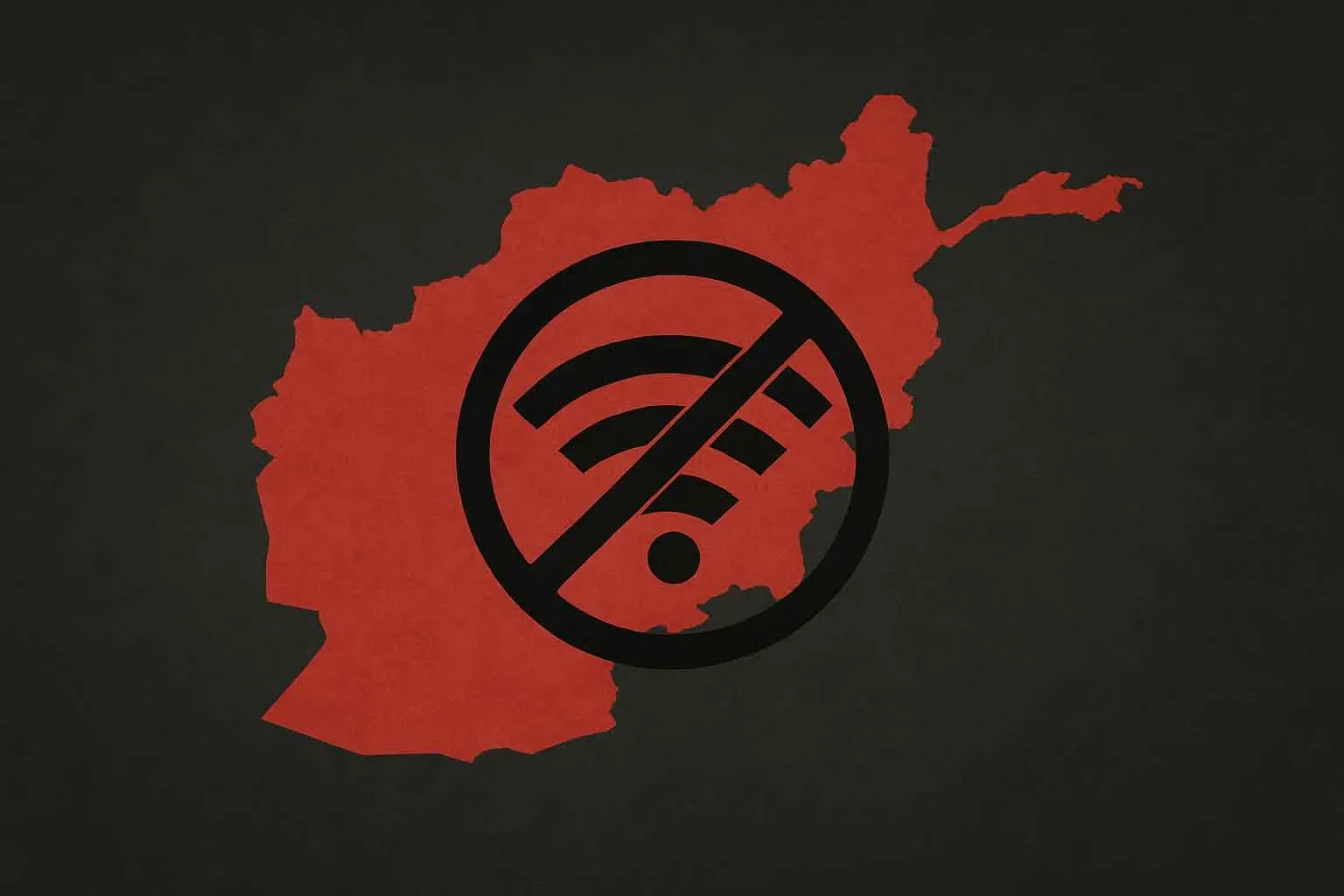KABUL, Afghanistan — Afghanistan is facing a comprehensive, two-day-long communications blackout after Taliban authorities intentionally cut the country’s fibre optic network, suspending both internet and mobile phone services.
The move marks a dramatic escalation of an effort that began earlier in the month, when Taliban authorities started shutting down high-speed internet connections in select provinces, citing the need to prevent “vice.”
On Monday night, the disruption broadened into a nationwide telecom shutdown. Mobile phone signals and internet services gradually deteriorated until connectivity registered at less than one percent of typical levels, according to the internet watchdog NetBlocks.
This is the first time communications have been completely severed across the country since the Taliban secured power in 2021 and implemented a stringent version of Islamic law.
The impact on daily life and the economy has been immediate and severe. Shopkeeper Najibullah, 42, in the capital Kabul, lamented the paralysis of commerce: “We are blind without phones and internet. All our business relies on mobiles. The deliveries are with mobiles. It’s like a holiday, everyone is at home. The market is totally frozen.”
In the moments leading up to the blackout, a government official notified AFP that the fibre optic network would be cut, which would also impact mobile phone services. The official, who requested anonymity, disclosed that “Eight to nine thousand telecommunications pillars” would be shut down, adding that the cessation of service would last “until further notice.”
The official underscored the cascading effect on the country’s essential infrastructure, stating, “There isn’t any other way or system to communicate… the banking sector, customs, everything across the country will be affected.”
NetBlocks, the organization that monitors cybersecurity and internet governance globally, confirmed the incident, stating the blackout “appears consistent with the intentional disconnection of service.”
The severity of the shutdown was reflected when Vivid Voice News lost all communication with its bureau in Kabul at approximately 5:45 pm (1315 GMT) on Monday.
The isolation has triggered deep worry for Afghans attempting to connect with family members. A 40-year-old Afghan residing in Oman, who wished to remain unnamed, conveyed his anxiety via text message: “Because of the shutdown, I’m totally disconnected with my family in Kabul. I don’t know whats happening, Im really worried.” The shared infrastructure for internet and mobile phone services, common in countries with limited telecoms development, means cutting the fibre lines effectively cripples both.
Also Read: Taliban arrests 14 in Afghanistan for playing music and singing
In the preceding weeks, connectivity had already become intermittent or severely slowed. On September 16, Attaullah Zaid, spokesman for Balkh province, publicly confirmed the complete ban on fibre optic internet in the northern province, citing an order from the Taliban leader.
He wrote on social media: “This measure was taken to prevent vice, and alternative options will be put in place across the country to meet connectivity needs.”
Vivid Voice News correspondents had previously reported similar restrictions in the northern provinces of Badakhshan and Takhar, as well as the southern and eastern provinces of Kandahar, Helmand, Nangarhar, and Uruzgan.
The current blanket shutdown is a stark contradiction to the government’s stated goals just last year. In 2024, Kabul had promoted the 9,350-kilometre (5,800-mile) fibre optic network—largely developed by former US-backed administrations—as a “priority” tool for connecting Afghanistan to the international community and combating poverty.
